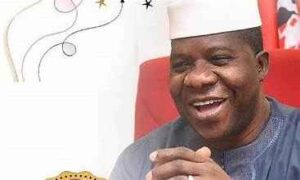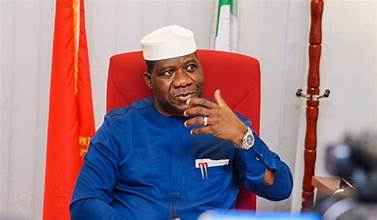Senator Michael Bamidele Opeyemi, leading the newly formed Ad-hoc committee investigating alleged economic sabotage in Nigeria’s petroleum sector, has urged conflicting parties to put aside their disputes to facilitate a thorough inquiry.
During his opening remarks at a stakeholders’ interactive session in Abuja on Wednesday, Opeyemi emphasized the need for collaboration among all industry players as the committee begins its investigative work, a month after its establishment by Senate President Godswill Obot Akpabio.
Opeyemi reassured stakeholders that the committee’s focus is on the nation’s welfare, clarifying that no one is facing trial at this stage. He called on all involved to cooperate fully, including sharing sensitive documents necessary for the investigation.
“The accusations of economic sabotage circulating in the media have created a toxic atmosphere of blame that serves no one’s interest now that the committee has launched its investigation,” he stated.
He continued: “I urge everyone to set aside their ongoing disputes as we embark on this critical journey to uncover the truth about these vital economic issues. This Ad-Hoc Committee was formed out of sincere concern for our nation’s well-being, and I assure you of our commitment to a fair and thorough investigation as outlined in the Senate’s resolution from July 3, 2024.”
Opeyemi highlighted that the committee would delve into various aspects, particularly the pre-shipment and pre-discharge testing standards enforced by the Nigerian Midstream and Downstream Regulatory Authority, aiming to identify any potential gaps.
The senator also pointed to serious allegations regarding the importation of harmful fuel and substandard oil products, noting that these claims will be thoroughly examined.
Additionally, he called for a review of the compliance levels of the Nigerian National Petroleum Company Limited (NNPCL) regarding its Direct Sale and Direct Purchase arrangements, assessing transparency and accountability within the framework of the Petroleum Industry Act.
The committee plans to scrutinize the operations of the Nigerian Midstream and Downstream Petroleum Regulatory Authority, including financial transactions related to transporters over the past decade. They will also seek updates from the NNPCL on the status of 22 depots established by the defunct NNPC to streamline petroleum distribution.

Opeyemi expressed the committee’s intention to engage with oil and gas stakeholders to uncover regulatory deficiencies and enhance monitoring mechanisms to prevent breaches of best practices before products enter the local supply chain.
In response, Mele Kyari, the Group Chief Executive Officer of NNPCL, pledged the company’s cooperation with the committee, asserting that the organization has nothing to hide. He lamented the negative media portrayal of the NNPCL and the unwarranted attacks against its management.
Kyari emphasized that the NNPCL, which serves over 250 million Nigerians, has made significant progress under his leadership in oil and gas activities. He suggested that the committee’s proceedings should be broadcast live on major television channels to keep the public informed about the investigation.
He declared, “Mr. Chairman, we at NNPCL are not criminals or thieves as depicted in the media. This company represents the future for all Nigerians, and we are committed to transparency.”




